U.S. Department of Energy Announces $27 Million in Plastics Recycling Research and Development
As part of DOE’s Plastics Innovation Challenge, these projects will also help improve existing recycling processes.
The U.S. Department of Energy (DOE) announced over $27 million in funding for 12 projects that will support the development of advanced plastics recycling technologies and new plastics that are recyclable-by-design. As part of DOE’s Plastics Innovation Challenge, these projects will also help improve existing recycling processes.
The BOTTLE: Bio-Optimized Technologies to Keep Thermoplastics out of Landfills and the Environment funding opportunity is jointly funded by the Office of Energy Efficiency and Renewable Energy’s (EERE) Bioenergy Technologies Office and Advanced Manufacturing Office. The projects are part of DOE’s Plastics Innovation Challenge, which draws on the research capabilities of DOE National Laboratories, universities, and industry to accelerate innovations in energy-efficient plastics recycling technologies.
Highly Recyclable or Biodegradable Plastics: Develop new plastics that have improved performance attributes over a comparable existing plastic and can be cost-effectively recycled or biodegrade completely in the environment or in compost facilities.
Novel Methods for Deconstructing and Upcycling Existing Plastics: Generate energy-efficient recycling technologies (mechanical, chemical, or biological) that are capable of breaking plastic streams into intermediates which can be upgraded into higher value products.
BOTTLE Consortium Collaborations to Tackle Challenges in Plastic Waste: Create collaborations with the BOTTLE Laboratory Consortium to further the long-term goals of the Consortium and the Plastics Innovation Challenge.
The following projects were selected under Topic 1a: Novel Bio-Based Plastics: Designing Highly Recyclable or Biodegradable Bio-Based Plastics:
- Iowa State University (Ames, IA) - Trojan Horse Repeat Sequences for Triggered Chemical Recycling of Polyesters for Films and Bottles – DOE funding: $2,165,000
- Partners include 3M, Archer Daniels Midland, and Diageo.
- University of California, San Diego (La Jolla, CA) - Production of high-performance biodegradable polyurethane products made from algae precursors – DOE Funding: $2,000,000
- Partners include Algenesis, BASF, Pepsi, Reef, and University of California – Davis
The following projects were selected under Topic 1b: Novel Plastics: Designing Highly Recyclable or Biodegradable Plastics:
- University of California, San Diego (La Jolla, CA) - Degradable Biocomposite Thermoplastic Polyurethanes – DOE Funding: $2,088,114
- Partners include BASF and University of Georgia.
- The University of Akron (Akron, OH) - Highly Recyclable Thermosets for Lightweight Composites – DOE Funding: $2,049,242
- Partners include Pacific Northwest National Laboratory and Raytheon Technologies Research Center.
The following projects were selected under Topic 2: Novel Methods for Deconstructing and Upcycling Existing Plastics:
- IBM Almaden Research Center (San Jose, CA) - Upcycling PET via the VolCat process – DOE Funding: $2,495,625
- Partners include Husky, Miliken, the National Renewable Energy Laboratory, Niagra, Oklahoma State University, Under Armor, and Unifi.
- Battelle Memorial Institute (Columbus, OH) - Hybrid Approach to Repurpose Plastics Using Novel Engineered Processes (HARNESS) – DOE Funding: $1,999,778
- Partners include Allonia and the National Renewable Energy Laboratory.
- Iowa State University (Ames, IA) - Modular Catalytic Reactors for Single-Use Polyolefin Conversion to Lubricating Oils from Upcycled Plastics (LOUPs) – DOE Funding: $2,500,000
- Partners include Argonne National Laboratory, ChemStation, Chevron Phillips, and Texas A&M.
- Case Western Reserve University (Cleveland, OH) - Hybrid Chemical-Mechanical Separation & Upcycling of Mixed Plastic Waste – DOE Funding: $2,498,539
- Partners include Braskem, Lawrence Livermore National Laboratory, Procter & Gamble, Resource Material and Recycling, and Sandia National Laboratory.
- LanzaTech, Inc. (Skokie, IL) - Upscaling of Non-Recyclable Plastic Waste into CarbonSmart Monomers – DOE Funding: $1,890,001
- Partners include InEnTec, Lululemon, and Waste Management.
The following projects were selected under Topic 3: BOTTLE Consortium Collaborations to Tackle Challenges in Plastic Waste:
- University of Delaware (Newark, DE) - Circular Economy of Composites enabled by TUFF Technology – DOE Funding: $2,499,983
- Partners include Altair, Arkema, Axiom, Colorado State University, Composites Automation, and the National Renewable Energy Laboratory.
- University of Minnesota: Twin Cities (Minneapolis, MN) - BOTTLE – Recyclable and Biodegradable Manufacturing and Processing of Plastics and Polymers based on Renewable Branched Caprolactones – DOE Funding: $2,499,997
- Partners include BASF, MIT, and the National Renewable Energy Laboratory.
- University of Wisconsin-Madison (Madison, WI) - Designing Recyclable Biomass Biomass-Based Polyesters – DOE Funding: $2,500,000
- Partners include Amcor, the National Renewable Energy Laboratory, Pyran, Stora Enso, and the University of Oklahoma.
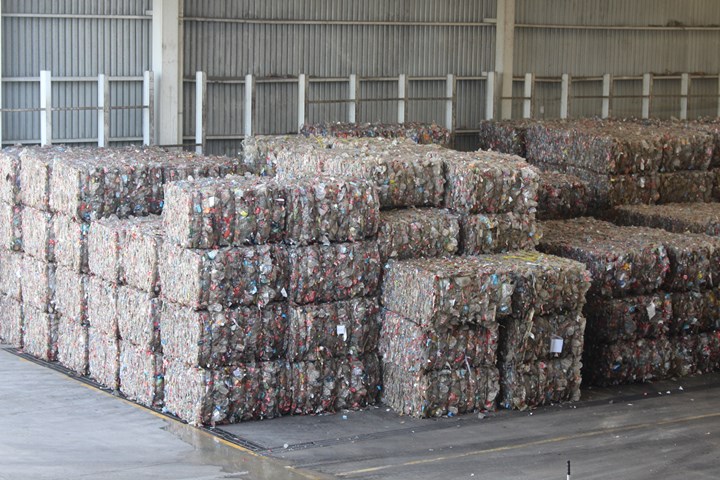
Related Content
Recycled Material Prices Show Stability Heading into 2023
After summer's steep drop, most prices leveled off in the second half.
Read More‘Monomaterial’ Trend in Packaging and Beyond Will Only Thrive
In terms of sustainability measures, monomaterial structures are already making good headway and will evolve even further.
Read MoreFilm Extrusion: Boost Mechanical Properties and Rate of Composting by Blending Amorphous PHA into PLA
A unique amorphous PHA has been shown to enhance the mechanical performance and accelerate the biodegradation of other compostable polymers PLA in blown film.
Read MoreAvoid Four Common Traps In Granulation
Today, more than ever, granulation is an important step in the total production process. Our expert explains a few of the many common traps to avoid when thinking about granulators
Read MoreRead Next
New IBM VolCat Process Breaks Down Waste Plastics into New Material
The team of researchers behind VolCat imagine the system being used at recycling and polyester manufacturing plants worldwide.
Read MoreAdvanced Recycling: Beyond Pyrolysis
Consumer-product brand owners increasingly see advanced chemical recycling as a necessary complement to mechanical recycling if they are to meet ambitious goals for a circular economy in the next decade. Dozens of technology providers are developing new technologies to overcome the limitations of existing pyrolysis methods and to commercialize various alternative approaches to chemical recycling of plastics.
Read MoreUnderstanding Melting in Single-Screw Extruders
You can better visualize the melting process by “flipping” the observation point so that the barrel appears to be turning clockwise around a stationary screw.
Read More (2).jpg;maxWidth=970;quality=90)
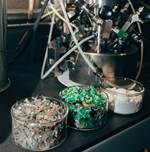





 (2).jpg;maxWidth=300;quality=90)
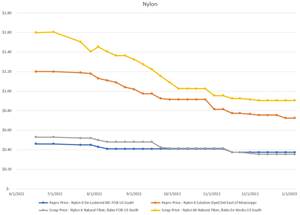
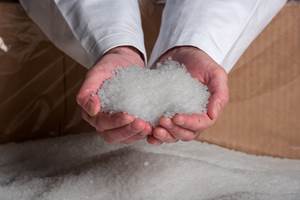
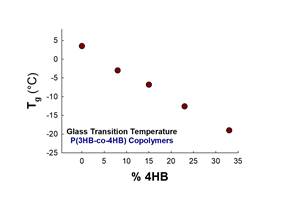
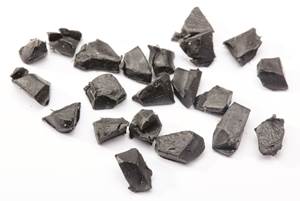
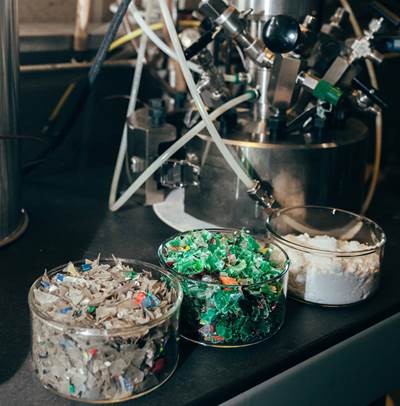

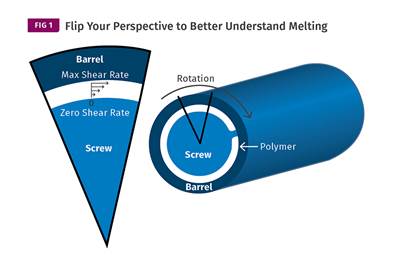
 (1).jpg;maxWidth=970;quality=90)